The views expressed in our content reflect individual perspectives and do not represent the authoritative views of the Baha'i Faith.
In the summer of 2017, I helped develop a project in Atlanta, Georgia, focused on a proposed memorial for the enslaved Africans once sold there – and it led me to a giant.
We planned to situate the memorial at the Crawford Frazier Brokerage, an auction house that once stood on the grounds of Five Points MARTA (Metropolitan Atlanta Rapid Transportation Authority) station in downtown Atlanta.
After we had completed the final design for the project and secured the necessary funding, we engaged in ongoing talks with the city about the logistical concerns surrounding the work. During our consultation, the design team decided to approach famed civil rights activist and Congressman John Lewis about the proposal to see if he would be willing to offer his support, an endorsement we hoped would go a long way toward persuading any reluctant officials in city government.
RELATED: Alain Locke: the Pulitzer Prize, Legacy and Privacy
So, on a sunny weekday in August, I found myself in a boardroom in an elegantly appointed office in a downtown Atlanta high–rise, my cream–colored cotton suit creased and wrinkled from the afternoon heat. I sat in one of the large, comfortable leather armchairs, thinking about the man I would soon meet. I thought of the grainy Black and white footage of him as a youthful civil rights worker from Troy, Alabama, leading a group of some 600 peaceful protesters across a bridge in Selma, Alabama, named after Edmund Pettus – a Confederate war veteran and former grand dragon of the Ku Klux Klan.
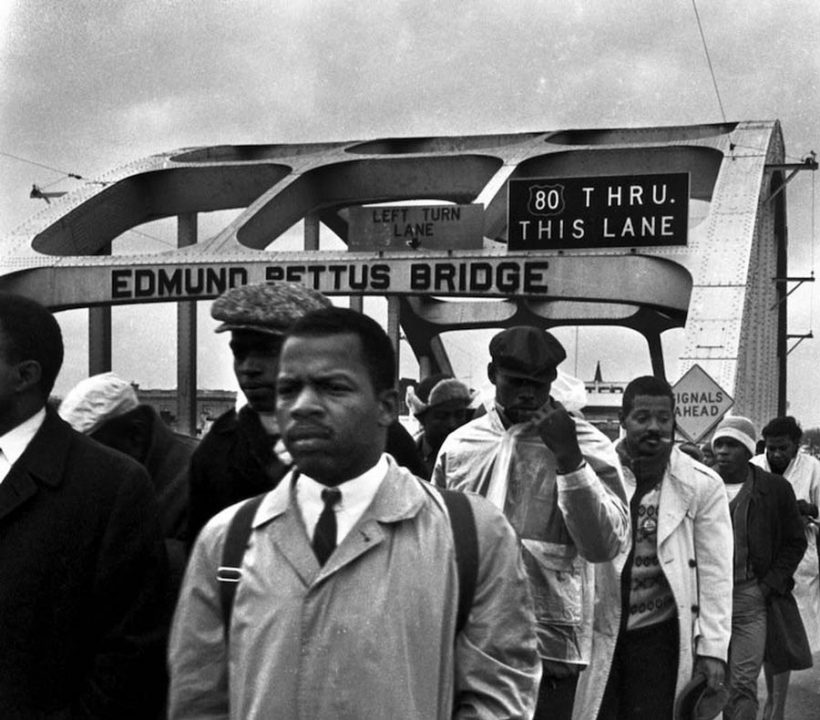
That day would come to be known as Bloody Sunday. The clubs that split heads open that day – the tear gas that burned the eyes – the ironclad feet of horses that trampled over men, women, and children alike – those searing images had left burn marks on my consciousness.
I thought of the March on Washington in 1963, when a 23-year-old John Lewis, a seasoned veteran of the freedom movement by then, stood before a crowd of thousands to deliver one of the keynote addresses. I thought of his years of public service and how his principled stand on human rights, environmental justice, and religious pluralism had become beacons of hope for a wayward society lost in the wilderness of racism, materialism, and moral relativism.
Yes, John Robert Lewis, diminutive in stature yet possessing monumental courage, cast a long shadow that I felt honored to stand in. So, as I waited, my palms sweating in anticipation, I steadied myself to meet a man who had contended with the forces of evil in life’s public arena many times over. The cuts and bruises his body suffered, wounds still visible today, show the scarred evidence of his moral convictions. The desecration of the flesh and the consecration of the spirit makes those scars both painful and beautiful to see.
In a talk in New York City in 1912, Abdu’l–Baha, the son of Baha’u’llah, the prophet and founder of the Baha’i Faith spoke of sacrifice. He said:
If you plant a seed in the ground, a tree will become manifest from that seed. The seed sacrifices itself to the tree that will come from it. The seed is outwardly lost, destroyed; but the same seed which is sacrificed will be absorbed and embodied in the tree, its blossoms, fruit and branches. If the identity of that seed had not been sacrificed to the tree which became manifest from it, no branches, blossoms or fruits would have been forthcoming.
When Congressman Lewis finally walked into the room and I rose to greet him, it felt, in some sense, like a confluence of histories. In his seven decades, he had seen and done so much. His life and the lives of many others – some known, some unknown – represented the sacrificial seeds from which my freedoms germinated. My generation entered the world on the worn heels of those who had marched towards a future made from the mystical intercourse of faith and fortitude. We were the children of the midwives of the movement, men and women alike, who birthed us into a world a little less threatening than the one they had known.
As we shook hands and I looked into his deep, knowing eyes, I could sense a kind of stillness, a quiet nobility, the acquired dignity of the tested. That grounding force seemed to anchor him to some unstated principled conviction. In his smile, I saw a calming reassurance. I felt a deeply rooted joy, an earned contentment known only to those who have offered up the best of themselves in service to others. In that same talk, Abdu’l-Baha said:
… man must sacrifice the qualities and attributes of the world of nature for the qualities and attributes of the world of God. For instance, consider the substance we call iron. Observe its qualities; it is solid, black, cold. These are the characteristics of iron. When the same iron absorbs heat from the fire, it sacrifices its attribute of solidity for the attribute of fluidity. It sacrifices its attribute of darkness for the attribute of light, which is a quality of the fire. It sacrifices its attribute of coldness to the quality of heat which the fire possesses so that in the iron there remains no solidity, darkness or cold. It becomes illumined and transformed, having sacrificed its qualities to the qualities and attributes of the fire.
I spent 45 minutes with John Lewis that day, telling him about my artistic vision, how I hoped to bend light and shadow to tell a painful story. Mostly, though, I listened. I listened as he spoke about the cleansing capacity of truth. I listened as he talked about life and legacy — about the bliss of purposeful suffering and the urgent need for courage.
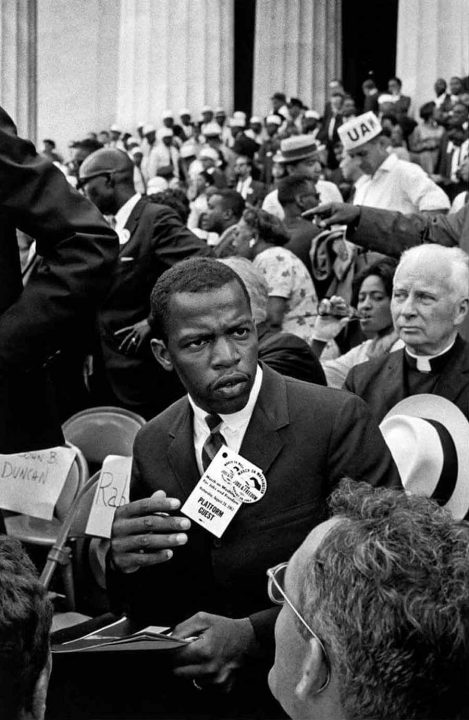
When I was a small boy, one of the first things I learned in art class was how to make a vessel out of clay. I remember stacking coils of red modeling clay, one on top of the other, as I dipped my fingers in water to form a weld between layers. All of the students in the class followed the same painstaking process, yet all of the cups looked slightly different. Some were slim, some were more rotund. Others slumped a little to one side or the other, but the one quality they all had in common was they could all hold water. This essential capacity defined their function.
Spending time with John Lewis reminded me of that important lesson. Leadership has no definitive form. It can reside in anyone. The person embodying it can be large or small, Black or white, male or female, rich or poor, educated or not. If the heart is open, we can recognize its substance and its fundamental irony: the path to leadership runs through the crucible of service, and the road to nobility admits only the sincerely humble.
As I gathered with Congressman Lewis and others for a group photograph before I left, I noticed his powerful posture of submission. He stood there with his hands clasped in front of him, and his head slightly bowed – his face radiant with a beautiful smile. In the photograph, it is evident that I am several inches taller than him, but I knew I was in the presence of a giant.
Ultimately, the proposed memorial wasn’t realized, despite the congressman’s enthusiastic support. The divisive nature of politics can grind many worthwhile projects to a halt, but for me, that isn’t what I remember most. I remember, for a brief moment in time, in an office in an unassuming building in downtown Atlanta, I sat and talked with John Robert Lewis, a servant, a quiet warrior for justice, a humble leader.
RELATED: African American Baha’is During Abdu’l-Baha’s Lifetime
It reminds me of what Abdu’l-Baha wrote about humility:
…man must become evanescent in God. Must forget his own selfish conditions that he may thus arise to the station of sacrifice. It should be to such a degree that if he sleep, it should not be for pleasure, but to rest the body in order to do better, to speak better, to explain more beautifully, to serve the servants of God and to prove the truths. When he remains awake, he should seek to be attentive, serve the Cause of God and sacrifice his own stations for those of God. When he attains to this station, the confirmations of the Holy Spirit will surely reach him, and man with this power can withstand all who inhabit the earth.
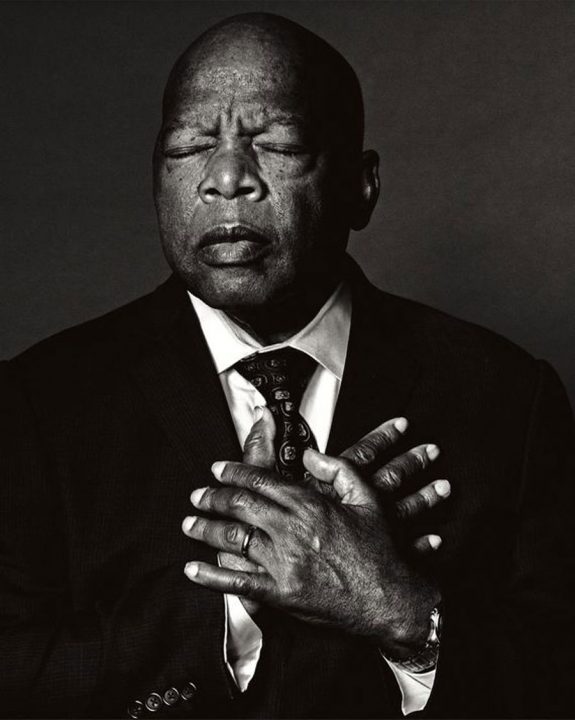
The Baha’i teachings ask every Baha’i to abstain from participation in partisan politics. Click here to read more about why.


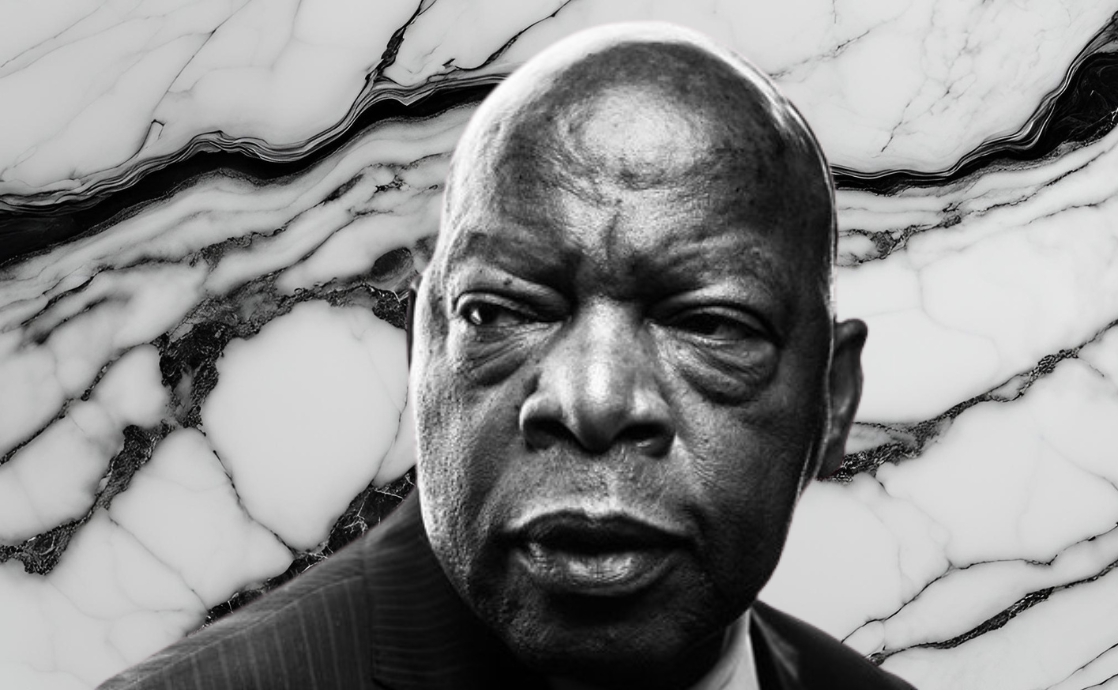


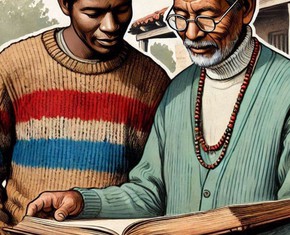










Comments
Sign in or create an account
Continue with Googleor